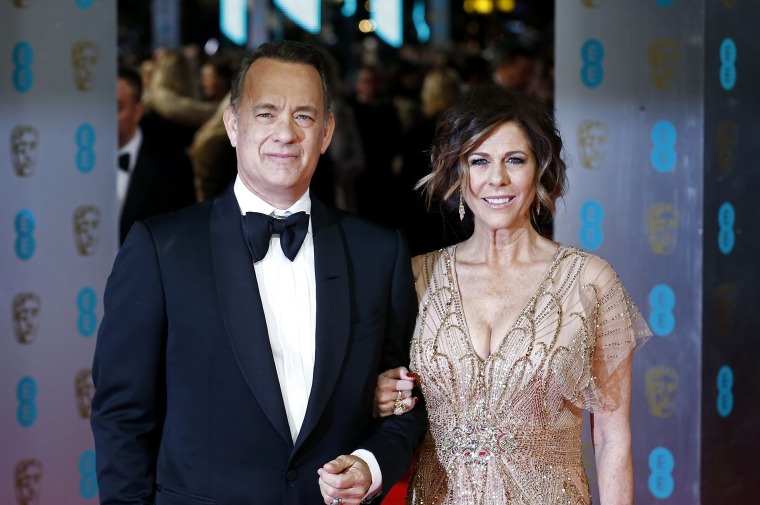Rita Wilson, 58, has undergone a double mastectomy and breast reconstruction after being diagnosed with breast cancer, according to a statement to People Magazine. Fortunately, it seems her cancer was caught at an early stage and she is expected to make a full recovery, all of which she attributes to one simple step: getting a second opinion.
We don’t hesitate to get a second opinion when choosing a caterer for a party or finding someone to fix a car, but when it comes to health, it’s a totally different situation.
According to a 2005 Gallup Poll, only 44 percent of people ever considered getting a second opinion from their doctor, and only three percent did so always.
In a statement Tuesday, the actress and wife of Tom Hanks said: “I share this to educate others that a second opinion is critical to your health. You have nothing to lose if both opinions match up for the good, and everything to gain if something that was missed is found, which does happen. Early diagnosis is key.”

Sometimes, as in Wilson’s case, a second opinion is essential and can drastically change a diagnosis or treatment plan. In a 2006 study out of the University of Michigan, the recommendations for surgery changed for more than half of breast cancer patients who came to the specialty center for a second opinion. Often, these changes were a result of specialists reading a mammogram or interpreting biopsy results differently.
Medical decisions are complex and the answers aren’t always black and white.
Despite what we commonly think, “medicine is an art, not a science,” says Therese Bevers, medical director of Houston’s Cancer Prevention Center at the MD Anderson Cancer Center, who is an advocate for second opinions.
This is especially the case when it comes to interpreting imaging or biopsies. In a study published in JAMA just last month, researchers found that pathologists disagreed on the diagnosis 25 percent of the time when looking at breast biopsies. They were more likely to disagree when the diagnosis was pre-cancerous— known as atypia or DCIS.
“It’s like going to an art museum and trying to identify the year and artist just by looking at the painting,” says Lavinia Middleton, a senior breast pathologist at MD Anderson Cancer Center.
Some artists, like Picasso, are very easy to identify, but for others the differences are more subtle. It takes an art history expert who’s studied hundreds of pieces to identify, and even then, sometimes the diagnosis can be difficult.
“The key is that it’s not just enough to get a second opinion but you need to get a second opinion from an expert,” says Dr. Michael Sabel, a breast surgeon at the University of Michigan.
Like the art historian who specializes in a particular era, someone who specializes in breast pathology will be much more skilled at identifying the subtleties of a breast cancer diagnosis.
Both Sabel and Bevers recommend getting a tumor board — a multi-disciplinary team of surgeons, oncologists, pathologists and others who assemble to discuss suspected cancer cases and make treatment recommendations — to weigh in.
“Breast cancer isn't treated by just one doctor,” says Sabel, “it's treated by multiple types of doctors and getting all of their opinions upfront can really lay out all the options for a patient who is facing a breast cancer diagnosis.”
According to Bevers, tumor boards are available at most centers that treat cancer.
If a second opinion can be so beneficial, why aren’t more people getting them?
Fear that there isn't time is one of the most common reasons.
“Most people diagnosed with cancer feel the time clock has turned on—when in fact there is time,” says Bevers.
Another reason is patients worry they may offend their original physician by asking for a second opinion. But both Sabel and Bevers agree that this shouldn’t stop anyone from asking.
At the end of the day, “this is going to affect them for the rest of their life”, says Sabel, and it’s important that patients get all the information to make the decision that is right for them.
In her statement, Wilson said: "I hope this will encourage others to get a second opinion and to trust their instincts if something doesn't 'feel' right."
She trusted her gut, and it paid off.